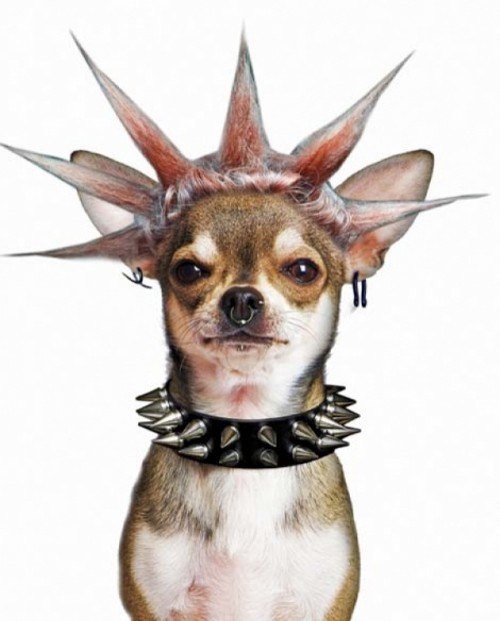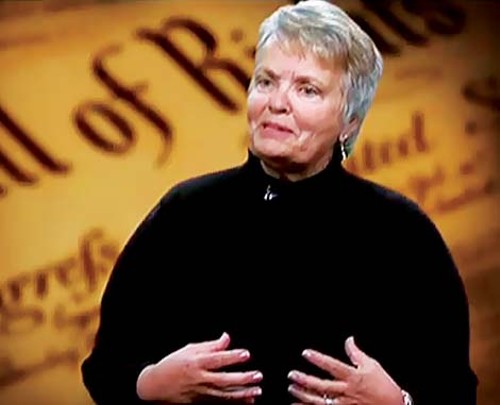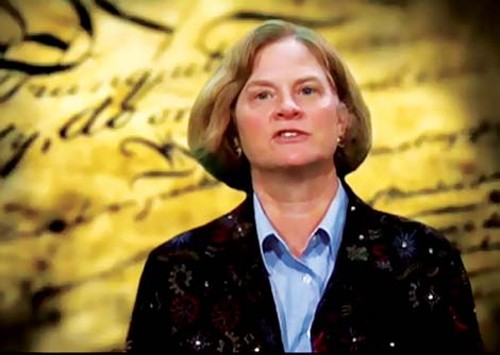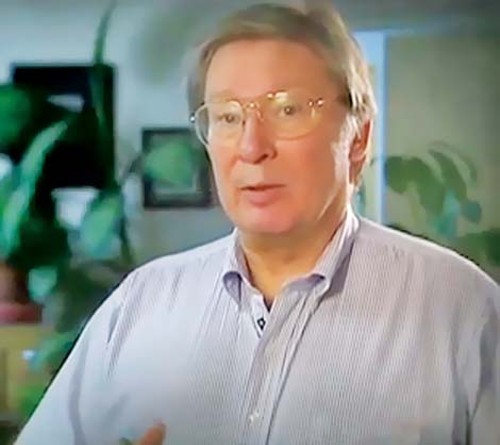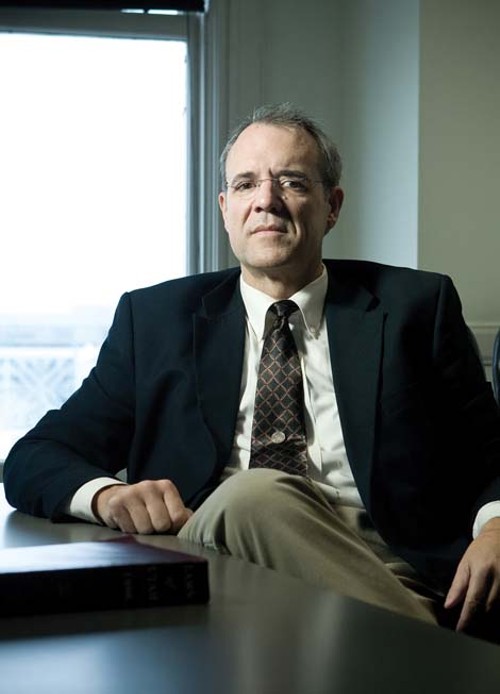Utah ACLU: All Bark
Advocates worry that the ACLU of Utah has lost its bite.
By Eric S. Peterson @ericspetersonCarol Gnade may have come to Utah for the skiing, but she stayed for the civil-liberties abuses—or, more accurately, to defend against them. In 1991, the entrepreneur and social worker from Madison, Wis., was on a ski vacation when, during a break at a Snowbird lodge, she heard a news report about the Utah Legislature banning abortions in the state.
She also heard about the American Civil Liberties Union of Utah challenging the bill and phoned the director to ask what kind of team they had to challenge the law. She was told it was just the director, another staff member and a part-time secretary. Gnade asked if she could help.
“[The director] said, ‘Can you come tomorrow?’ ” Gnade recalls with a laugh. “I decided that skiing didn’t seem like fun to me, so I thought it would be much more fun to go help with this outrageous Utah Legislature.”
Gnade (pictured at left) would eventually return and take over as executive director of the watchdog group from 1993 to 2002. Those were fighting years, especially in the early 2000s, when the ACLU of Utah defended gay-straight alliances in high schools and took on Salt Lake City for selling a block of Main Street to The Church of Jesus Christ of Latter-day Saints.
Since 2000, in fact, the ACLU of Utah has been party to or initiated 11 lawsuits.
But all of those legal actions were filed and fought between 2000 and 2005. Since 2005, the local ACLU has filed exactly zero lawsuits. That lack of legal action has local civil-rights attorneys asking: Who muzzled the watchdog?
In the organization’s lawsuit-slinging days, it raised awareness through legal actions and media coverage, but only hosted one community outreach event—a booth co-sponsored with The King’s English Bookshop, passing out literature about the First Amendment and censorship at the Downtown Farmers Market.
Since 2005, the ACLU of Utah has held 14 outreach events, including panel discussions, documentary film screenings and community workshops, according to the organization’s Website.
Could it be that those who would deprive us of our civil liberties learned their lessons from the ACLU of Utah during 2000-05? Longtime civil-rights attorney Brian Barnard doesn’t think so.
“There are many, many statutes, practices and situations in Utah today of egregious and systemic violations of civil rights which warrant—cry out—for litigation,” Barnard writes in an e-mail. “All civil-rights attorneys in Utah have not collectively declared victory and retired.”
While the ACLU of Utah may be muzzled as far lawsuits go, current director Karen McCreary (pictured at left) says the organization is simply being pragmatic.
“We’ve been giving our attention to what we can do and what’s feasible to do,” says McCreary, citing significant behind-the-scenes negotiating and correspondence in recent years with various legislators, school districts and government agencies.
The ACLU of Utah might not be the courtroom attack dog it once was, taking on everyone from small-town cops to the LDS Church, but the organization is still a vocal advocate. Former ACLU of Utah cheerleaders interviewed for this story, however, wonder how the organization can maintain credibility in the legal community without filing more lawsuits and legal briefs. Even if it avoids epic (and costly) battles, they say it should continue to help the little guys with their smaller, yet still crucial, cases.
A case in point is Joseph Alden Compton, a convert to the fundamentalist Mormon sect known as the Apostolic United Brotherhood. In late 2009, the Juab County judge overseeing the divorce proceedings of Compton—who was representing himself—and his ex-wife ruled that their children could not be exposed to any of Compton’s religious teachings or even visit him in his neighborhood because it was a known enclave of polygamists. His ex-wife feared that the fundamentalists would negatively influence their children.
“I actually talked to the ACLU and, initially, they were very interested,” Compton says. “But for some reason, they said they changed their mind and that they didn’t want to do it.”
John Pace, a Salt Lake City attorney who has worked with the ACLU of Utah on cases, says that local civil-rights attorneys don’t feel the organization is going to bat for clients the way it used to because of fears of negative publicity.
“If anyone should not be concerned about bad publicity, it should be the ACLU,” Pace says.
Educators and Ambulance Chasers
Former ACLU of Utah director Gnade found a lot of her strength in, ironically, not being a lawyer. As the boss of her own public-relations firm in Madison, she extended her vacation for several weeks in 1991 when she helped the ACLU of Utah in its abortion-ban lawsuit. She returned to her firm in Wisconsin for less than a year before accepting a staff position with the ACLU of Utah, which soon led to her promotion to executive director.
It was during her almost 10-year tenure that the ACLU of Utah picked some serious fights, defending the likes of Wendy Weaver, an American Fork High School teacher fired for admitting to a student in a nonclassroom setting that she was gay. These were also formative years in protecting students’ rights to form gay-straight alliances in high schools and addressing complaints against Salt Lake City for selling a block of Main Street to the LDS Church.
Gnade operated on three simple priorities: keeping the ACLU fiscally sound, managing an office of “rugged individualists” and “being an ambulance chaser for civil rights.”
Public relations being her forte, Gnade developed a strong rapport with the media and constantly sought out plaintiffs. For Gnade, a critical problem for the ACLU of Utah was the public’s lack of understanding. Just as many bureaucrats, judges or legislators might not understand how their actions could be unconstitutional, she found that people didn’t realize their civil liberties were being trampled upon.
“It is very hard to get people to walk into the door, because they’re afraid,” she says.
For a nonlawyer, Gnade got the ACLU of Utah involved in many legal battles. But, she says, that’s not the only way to effectively run the organization. “You don’t get a job description for [executive director] that makes it easy and clear.”
Gnade does believe, however, that dealing with civil-rights abuses during her tenure involved more stick than carrot.
“You have to decide if you want to make nice or if you want to make headway,” she says, adding that alternative measures like letter-writing can resolve issues but “it’s lawsuits that make headway. Since we’re one of the only organizations that can do that, it makes a difference.”
Gnade felt that when she stepped down, the board of directors may have been ready to become an organization that worked more from the grass roots up than the courtrooms down. After Gnade, Dani Eyer led the ACLU of Utah for four years, and McCreary, the current director, began in 2006. Eyer could not be reached for comment on this story.
Prior to her time at the ACLU of Utah, McCreary had worked as associate and senior associate general counsel for the University of Utah and as counsel for the Western Governors University. She speaks casually of a childhood living in India and volunteering to fight for the rights of migrant workers in high school, as if it were a typical American upbringing.
She also appreciates the value of a lean-and-mean approach to running the ACLU of Utah.
“Our goal is to be as effective and as strategically responsive in those areas as we can be,” McCreary says. “There is a fair amount of things we do behind the scenes. We write letters, we call people, we tell them what the law is—having said that, we also have a legal panel, lawyers and litigation capacity.”
Lawsuits vs. Lobbying
To litigate or not is a tricky question. While many civil-rights attorneys subscribe to a sue-first, ask-questions-later attitude, the ACLU of Utah is leaning toward a tack of more aggressive behind-the-scenes wrangling.
The lack of lawsuits since 2005 is not for a lack of controversial laws and practices, most notably Senate Bill 81 in 2008.
When this omnibus immigration bill was introduced in the Legislature in 2008, it immediately instilled panic in Utah’s undocumented and documented immigrant communities with its broad-sweeping requests for employment verification and allowing for local law enforcement to be cross-deputized with U.S. Immigration and Customs Enforcement powers.
When the bill became law on July 1, 2009, however, the ACLU of Utah did not file a lawsuit, despite similar lawsuits placed against comparable legislation in states like Oklahoma. Instead, the ACLU of Utah initiated a number of community forums to discuss immigration reform and the impacts of the bill.
If there’s anyone who’s pleased with that outcome, it’s Salt Lake City attorney Roger Tsai, a veteran immigration attorney and board member of the Salt Lake Chamber Immigration Taskforce.
“The ACLU hasn’t sat around doing nothing,” Tsai says, citing the informational guides the ACLU of Utah created in English and Spanish to educate people about the impacts of the bill. The outreach and the forums, Tsai says, have had more impact than a lawsuit likely ever could.
“In some ways, [outreach] is even more important than a lawsuit. I think it’s more important to get information to the immigrant community about what [SB 81] actually means to them,” he says. “The most detrimental part to that community is the kind of fear and rumors it generates, rather than the actual substance of the law.”
In another instance, outrage over discounted ballots during the 2007 Ogden mayoral race resulted not in a lawsuit, but a new state law. In 2007, thousands of voters were shocked to find that, when they showed up at their polling locations, their eligibility as voters had been challenged, forcing them to cast a provisional ballot. With hundreds more than usual provisional ballots turning up, overwhelmed election staff had to throw out many votes because they could not confirm the eligibility of the voters.
“Unfortunately, the way the law was drafted, somebody could submit a list to the county clerk saying, ‘I think all of these people are ineligible to vote,’ without any factual sort of basis,” says Marina Lowe, the legislative liaison for the ACLU of Utah and former legal director.
Pulling the trigger on a lawsuit would have required the ACLU of Utah to prove that the discarded ballots would have changed the outcome of the election—a time-consuming and costly effort to even get the complaint off the ground. Instead, the ACLU of Utah spent two years working with legislators, elections-office officials and county clerks to develop a bill passed by Sen. Peter Knudson, R-Brigham City, during the 2010 Legislature to protect voters’ rights at the polling place. The bill requires that if a vote is to be challenged, it has to be done before Election Day. Further, the challenger must provide facts to back up the claim under penalty of perjury and the challenged voter must have time to respond to the challenge.
“It’s really great that the ACLU has multiple tools to use,” Lowe says. “In this case, a lawsuit couldn’t effect the change that we wanted.”
Cost is another consideration. While the ACLU of Utah Foundation’s most recent 990 tax filing, for 2008, shows the organization had $643,264—slightly more net assets than 2007—recent changes in national funding have put chapters on notice all across the country. In 2009, The New York Times reported that the national ACLU had lost its largest donor, David Gelbaum, who annually donated more than $20 million to the organization, often making up as much as 25 percent of the organization’s budget.
According to ACLU of Utah’s newsletter for January 2010, The ACLU Reporter, it was unclear what the budgetary trickle-down effect would be for state offices, but “the ACLU is engaged in belt-tightening at every level of the organization. The ACLU of Utah benefits greatly from the national ACLU office.”
Robert Wood, the current ACLU of Utah board president, actually sees the budget as a nonissue. “The year we just ended, we had a surplus,” he says. “People have really stepped up, and we haven’t had to cut back [operations].”
Wood also doesn’t see the lack of lawsuits as representative of a lack of advocacy. “We’ve had a streak for a while where just the threat of litigation brought out pretty good results for us,” Wood says. “We just say, ‘You keep doing this, and we’ll have to sue you,’ and they say, ‘Yeah, we’ll stop doing it.’ ”
Use It or Lose It
For an organization that’s taken on almost every power player in the state—from the prisons to the Legislature to the LDS Church—the ACLU of Utah has rarely employed more than a handful of staff. Currently, the organization has recruited a new legal director from the New York State Attorney General’s Office, Darcy Goddard, to assist Lowe and McCreary. But as for actual litigation, the office has always relied on attorneys in the local legal community to help fight their battles. Without taking any issues to the courts in years, however, some attorneys who have previously worked closely with the ACLU of Utah are beginning to lose faith.
For Gnade, one of the most critical dynamics to the success of the ACLU of Utah was having a bevy of private-practice attorneys who had the passion but not the resources of the ACLU of Utah.
“Individual attorneys don’t have the time for these kinds of suits to [work] on their own,” she says. “So, they need an organization to partner with.”
Attorney Barnard (pictured at left) has been a proud foot soldier for the ACLU of Utah, working as a cooperating attorney for decades. While he sees the hiring of experienced litigator Goddard as a positive, he’s also saddened by the organization’s recent track record.
“I am dismayed that the Utah ACLU has not filed a lawsuit in almost five years. Clearly, that is not because civil-rights violations no longer occur in Utah,” Barnard writes via e-mail. “I can give you a list of five substantial, systemic problems in the Davis and Salt Lake County jails and at the Utah State Prison that warranted lawsuits in that time period. Quiet public education behind the scenes is not the primary mission of the ACLU. Bureaucrats ignore letters from the ACLU; they cannot ignore lawsuits.”
While Barnard has a working relationship with the organization, even those further away share his views. Unaffiliated civil-rights attorney Randall Edwards, see an organization losing credibility in the local legal community.
“Word on the street is that the ACLU of Utah has become toothless when it comes to actually litigating anything here, which would seem to fly in the face of the original mission of the organization,” Edwards writes via e-mail. The result he sees is an organization not taken seriously, and one that leaves many egregious civil-liberties violations left unchallenged when the client can’t afford to go to a private attorney in the first place.
“They can speak at seminars all they want, but who cares, [if] they won’t back it up with actual lawsuits?” Edwards writes.
Joseph Compton approached the ACLU of Utah with just such a predicament after the ruling in Juab that made his religious beliefs legal fodder. Although the ACLU of Utah had an initial meeting with him, they eventually backed away from the case.
A court transcript of an Aug. 25, 2009, hearing provides some detail of Compton’s fight for visitation and custody rights for his and his ex-wife’s eight children.
“There’s nothing to show that teaching children the importance of celestial plural marriage is damaging: the [LDS] Church teaches it also,” Compton testified, before being cut off by 4th District Judge Donald Eyre, who interjected that children should have consistency in their religious upbringing.
“Clearly, your wife, at least through her expression in her complaint, desires that she continue, and the children continue, a certain religious, you know, background. And clearly, that’s within her rights,” Eyre said in the hearing. (Eyre did not comment for this story.)
Compton relented and informed the court he’d be happy to take his children to any local LDS ward they wanted, noting that he still was a member of the LDS Church. Eyre ordered that during visitation that the tenets of his fundamentalist belief not be expressed to his children in or outside of his presence. Compton was also ordered to visit his children only outside of the neighborhood. Eyre was persuaded by the argument made in court by the attorney for Compton’s wife, David Leavitt, that the neighborhood was a “known haven for polygamy” and the children should not be allowed into a place where people are wantonly committing felonies.
“I think it’s well established that in the best interest of the children, the law can [keep] them away from drug houses and all kinds of criminal activity, and, for decades, bigamy has been a felony,” Leavitt says in an interview with City Weekly.
While the ACLU’s Lowe admits that their legal panel gave the green light to Compton’s case for further inquiry or potential litigation, she says the executive staff decided against it.
“We looked at it and were hoping we could help him, but for various reasons we were unable to,” Lowe says.
Compton has since retained a lawyer, Daniel Irvin, who recently filed an objection to the judge’s temporary order, which has been in effect since August 2007. He maintains that while bigamy is a crime, believing in polygamy without practicing it is not a crime.
Irvin worries that bias in the courtroom adversely affected his client. He says had the ACLU of Utah filed a lawsuit and only took it as far as an initial complaint, at the very least, it could have forced the judge to recuse himself from the case, which would be a “blessing” for Compton.
Irvin, who actually interned with the ACLU of Utah in the early 2000s, was surprised the ACLU didn’t get involved. “I thought they were there to protect our Bill of Rights? This [case] screams ‘Bill of Rights!’ We think you have a right to associate with whoever you want and teach religious principles in your home,” Irvin says.
Old Dog, Old Tricks
As a watchdog, the ACLU of Utah has gone through some changes. At the beginning of the decade, the ACLU of Utah was like a junkyard dog that wouldn’t hesitate to bite down with a lawsuit on city government and the LDS Church. It would even growl at businesses that offered consumer discounts to returned LDS missionaries. Now, as a legislative lobbyist and public educator, the Lassie-like version of the old watchdog is friendlier, easier to pet, but still vigilant of any threat to the Bill of Rights, barking loudly to alert the powers that be when Timmy’s civil liberties have fallen down a well.
Still, it will take some convincing for some attorneys who remember the ACLU of Utah’s lawsuit-filing glory days to adjust to the softer strategy, especially when they avoid courtroom battles like Compton’s.
“The ACLU [of Utah] used to be notorious for jumping into [legal battles] in order to change policy through the court system,” attorney Edwards (pictured at left) writes, “since the political system here is ... uh ... somewhat unfriendly to minorities, women, old people, gays, Democrats, heathens, drinkers, long-hairs, street people ... you get the picture. The ACLU is neither a resource of first resort nor even last resort.”
The jury is not out, however. Some, like Tsai, who have seen the importance of the ACLU of Utah’s grass-roots efforts with helping calm the fears of Utah’s immigrant population, disagree. “The question is if people want to see more lawsuits,” Tsai asks. “Are they willing to consider significantly increasing donations to the ACLU to actually see those lawsuits happen?”
But the old bite may not be completely gone. The ACLU of Utah, partnered with the University of Utah’s Civil Rights Legal Clinic, has been surveying the quality of indigent defense provided for impoverished defendants in Utah’s legal system. With a new legal director who possesses serious litigating credentials, people like Barnard are cautiously optimistic about the ACLU of Utah reforming Utah’s support for poor defendants, which often is ranked among the worst in the nation. With that issue and others, the small but scrappy staff of the ACLU aren’t taking anything off the table when it comes to the good fight.
“Sometimes it takes [legal action], sometimes it’s public education, sometimes it’s legislative—it takes all those things,” McCreary says. “Because the potential of the government to abuse its power or to have the rights of minorities trampled on—it’s kind of human—so we have to keep working with all the tools we have.”
“There may be some things we don’t have a choice [but to litigate], in the near future,” says Goddard, chiming in.
“Yeah, so stay tuned,” McCreary says.
| Eric S. Peterson: |
Speaking of...
-
Best of Utah 2014: Dine & Drink
Best Pizza Este Pizzeria Pizza is a very personal thing. And for true pizza enthusiasts, the pursuit of the perfect pizza is never-ending. Well, for aficionados searching out thin-crust,
- Mar 26, 2014
-
Best of Utah 2014: Media & Politics
Best Radio Station X96 Listeners can complain about Mumford & Sons all they wish, but the truth is that X96 is one of the few alternative destinations remaining on Utah’s dial
- Mar 26, 2014
-
Best Of Utah 2014: Nightlife
Best Classic Club Club 90 This spacious oasis has a motto that’s held true since the club’s opening in 1979: “There’s a place for everyone, and it’s at the Nine-O.”
- Mar 26, 2014
- More »
More by Eric S. Peterson
-
The Secret Sauce
How Utah lawmakers disclose—or don't disclose—conflicts of interest.
- Feb 14, 2024
-
Police departments in Salt Lake County spent almost $20 million on civil rights complaints in the past decade
The Co$t of Mi$conduct
- Oct 18, 2023
-
Women decry harassment and toxic culture at St. George auto dealership
Men at Work
- Oct 11, 2023
- More »
Latest in Cover Story
Readers also liked…
-
Forget the family pedigree—Robert F. Kennedy Jr should not be the next president of the United States
Trojan Horse
- Jun 21, 2023
-
Women decry harassment and toxic culture at St. George auto dealership
Men at Work
- Oct 11, 2023


